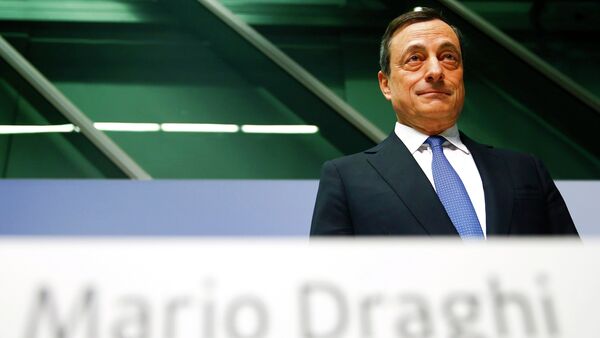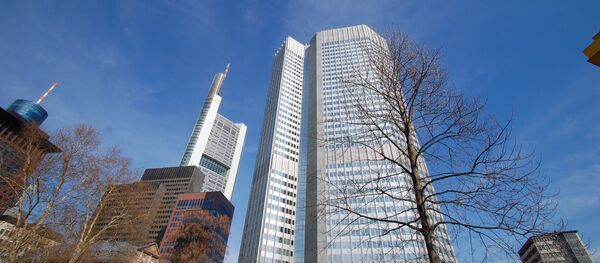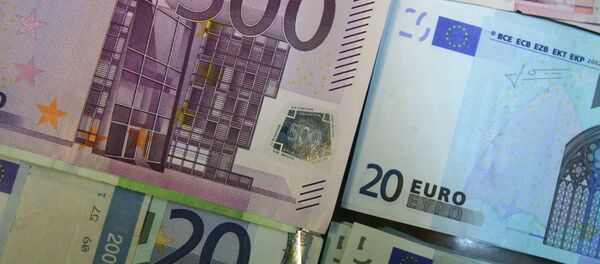The program is due to start in March and is expected to end in September 2016.
At 13:52 GMT, the Euro was edging lower to the US dollar, trading at 1.15 to the US dollar, 0,59% down compared with late Wednesday close.
"We decided to keep the key ECB interest rates unchanged," Draghi also said.
Mitch Feierstein, a hedge-fund manager and chief executive of the Glacier Environmental Fund Limited, has described the ECB decision on QE as a “Ponzi scheme akin to Monetary Heroin.”
“Simply stated, the ECB’s QE is a back door banking bailout that transfers risks to the balance sheet of EU Taxpayers,” Feierstein told Sputnik news agency Thursday.
“Coincidentally, that's the same 25-year duration as Japan’s lost decades and failed QE infinity programs,” Feierstein told Sputnik.
ECB’s President Mario Draghi earlier deemed the quantitative easing program as a “bazooka.”




